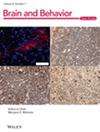摘要
目的 本研究旨在识别与帕金森病认知功能障碍相关的风险因素,并建立一个预测模型,以促进临床早期发现、诊断和管理,从而改善患者的预后和生活质量。 方法 2022年1月至2023年12月期间,山西医科大学第一医院神经内科共招募了351名帕金森病患者。采用蒙特利尔认知评估量表(MoCA)评估认知功能,然后将患者分为认知正常组(PD-NC)和认知受损组(PD-CI)。为确定风险因素进行了逻辑回归分析,并构建和验证了预测模型。 结果 351例PD患者中,PD⁃NC组188例,PD⁃CI组163例,认知障碍发生率为46.4%。逻辑回归分析表明,H-Y分类、HAMA评分、同型半胱氨酸、尿酸和叶酸是重要的预测因子,并被纳入回归方程。构建的预测模型的接收者操作特征曲线下面积为 0.738。 结论 PD 患者的认知功能受 H-Y 分类、HAMA 评分、同型半胱氨酸、尿酸和叶酸的影响。所构建的预测模型具有良好的区分度和校准性,为帕金森病患者认知功能障碍的早期临床识别和干预提供了参考依据。

Objective
The study aims to identify risk factors associated with cognitive impairment in Parkinson's disease and to develop a predictive model to facilitate early clinical detection, diagnosis, and management, thereby enhancing patient prognosis and quality of life.
Methods
A total of 351 PD patients were enrolled from the Department of Neurology at the First Hospital of Shanxi Medical University between January 2022 and December 2023. Cognitive function was evaluated using the Montreal Cognitive Assessment (MoCA) scale, and patients were subsequently categorized into cognitively normal (PD-NC) and cognitively impaired (PD-CI) groups. A logistic regression analysis was conducted to identify risk factors, and a predictive model was constructed and validated.
Results
Among the 351 patients with PD, 188 cases were in the PD⁃NC group and 163 cases were in the PD⁃CI group, with an incidence of cognitive impairment of 46.4%. Logistic regression analysis indicated that H–Y classification, HAMA score, homocysteine, uric acid, and folic acid were significant predictors and were incorporated into the regression equation. The constructed prediction model had an area under the receiver operating characteristic curve of 0.738.
Conclusions
The cognitive function of PD patients is influenced by H–Y classification, HAMA score, homocysteine, uric acid, and folic acid. The constructed prediction model demonstrates good discrimination and calibration, providing a reference basis for early clinical identification and intervention of cognitive impairment in Parkinson's disease patients.

 求助内容:
求助内容: 应助结果提醒方式:
应助结果提醒方式:


